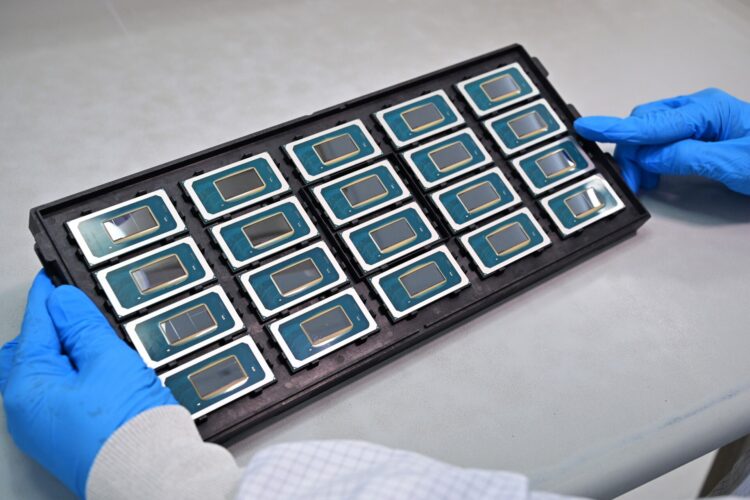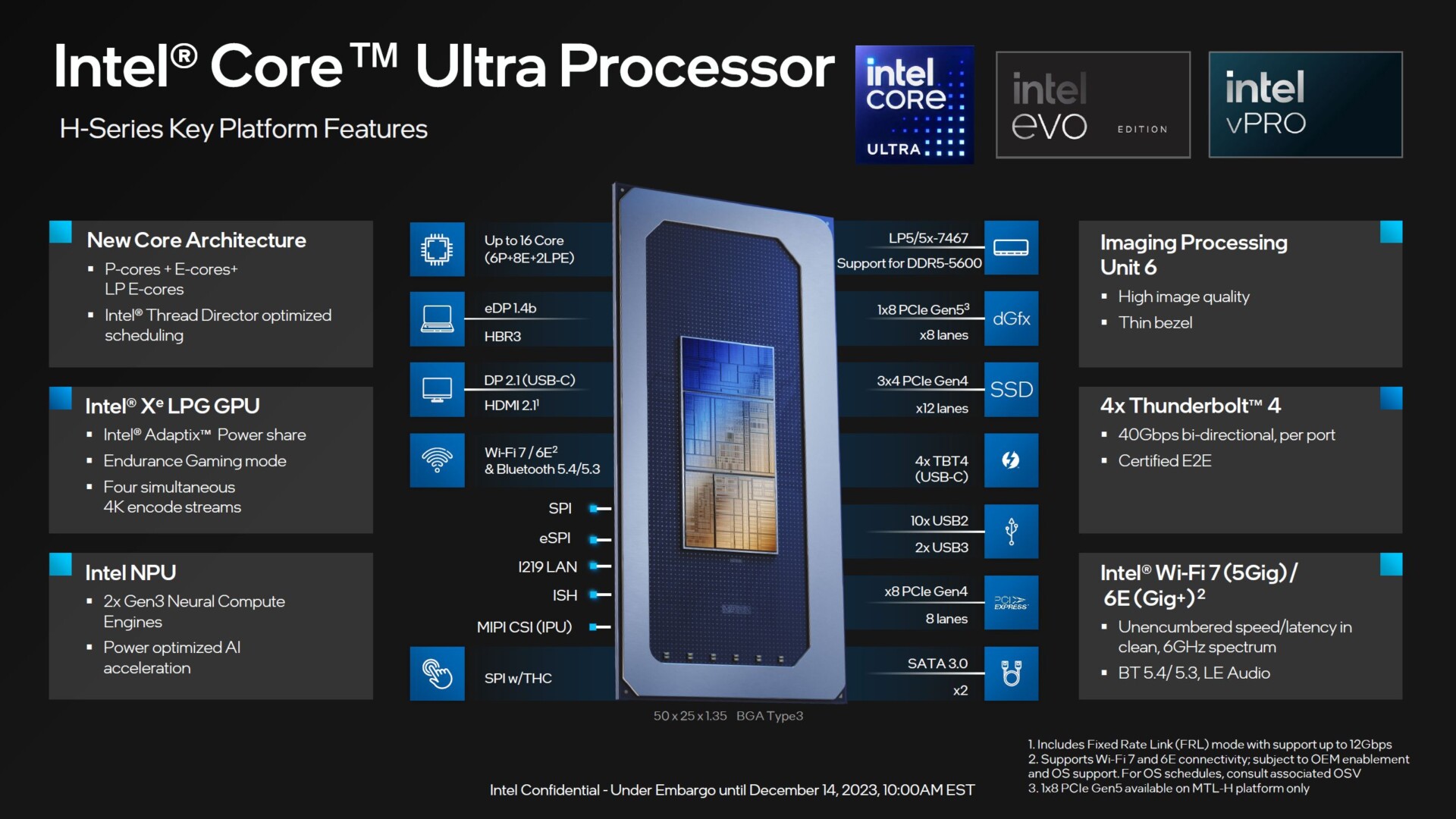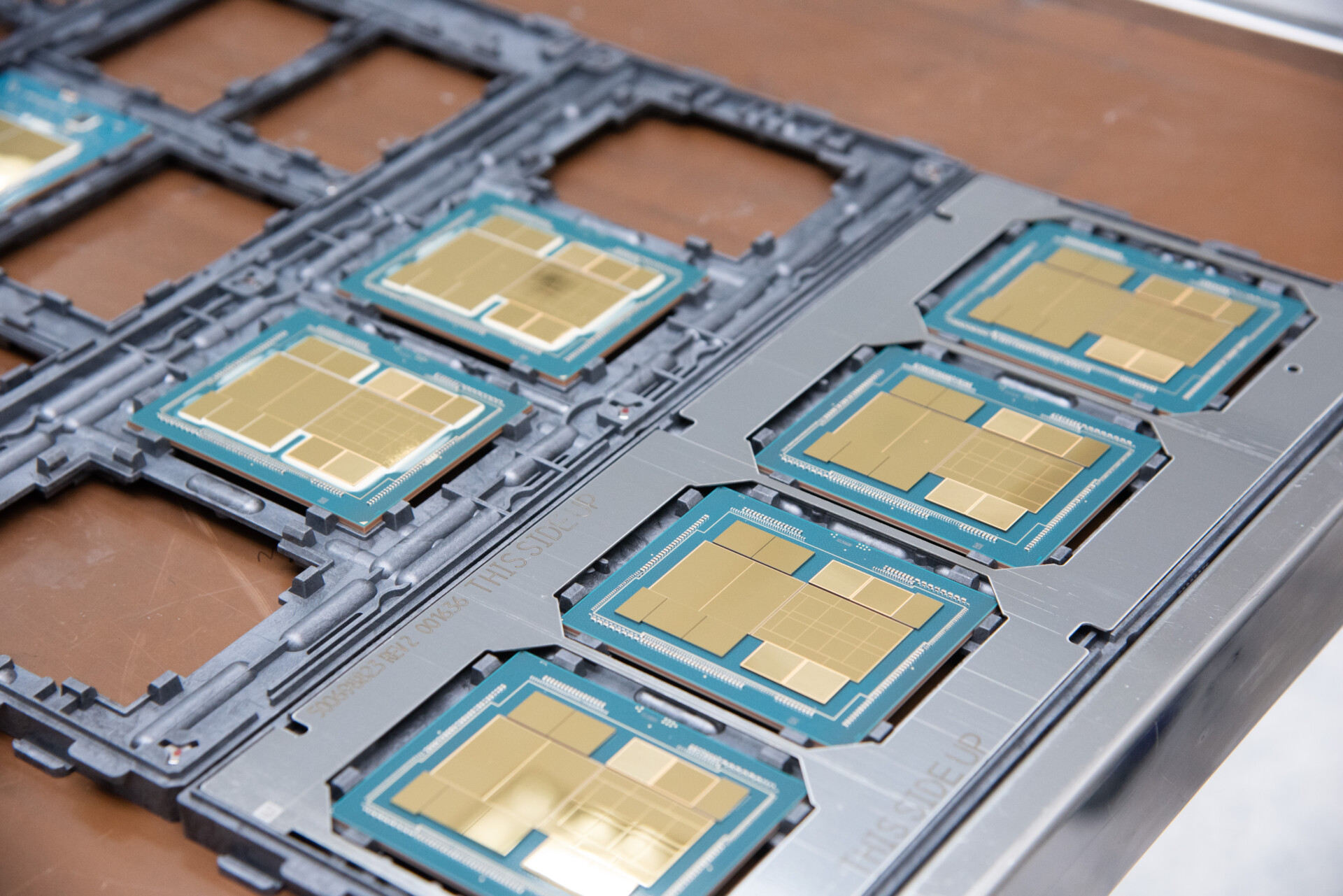Intel’s 14th Gen Meteor Lake has gone down a storm since its launch and from what we’ve experienced thus far, the mobile processors have proven to be nothing short of impressive. It’s so good that demand for these AI-centric CPUs is skyrocketing and the chipmaker is struggling to meet said demands.
Intel says that it is trying to build out more production capacity but its assembly process is currently holding it back. “We’re meeting our customer commitments that we’ve had, but they’ve come back and asked for [more] on multiple occasions across different markets,” Pat Gelsinger, CEO at Intel, explained. “And we are racing to catch up to those upside requests and the constraint has been on the back-end wafer level assembly, one of the new capabilities that are part of Meteor Lake and our subsequent client products. So with that we’re working to catch up and build more wafer-level assembly capacity to meet those.”
The major reason behind the boom in demand is due to the “AI PC era” that Meteor Lake ushered in. Additionally, Intel says that the demand for the processors is expected to pick up speed even faster during the second half of the year, with Microsoft’s expected update to Windows 11.
Intel has said that it is trying to address the production and assembly issue by expanding its semiconductor industry across the globe. Malaysia is one such country and we had a chance to see the wafer-level assembly and chip packaging floor back in September last year.
Intel is trying to navigate through five process node in four years, with Meteor Lake being the first on its list, followed by Arrow Lake, Lunar Lake, and then Panther Lake. Both Arrow Lake and Lunar Lake will represent the chipmaker’s transition into the “angstrom era” of production, based on the new Intel 20A process, and Panther Lake on 18A.
Follow us on Instagram, Facebook, Twitter or Telegram for more updates and breaking news.





